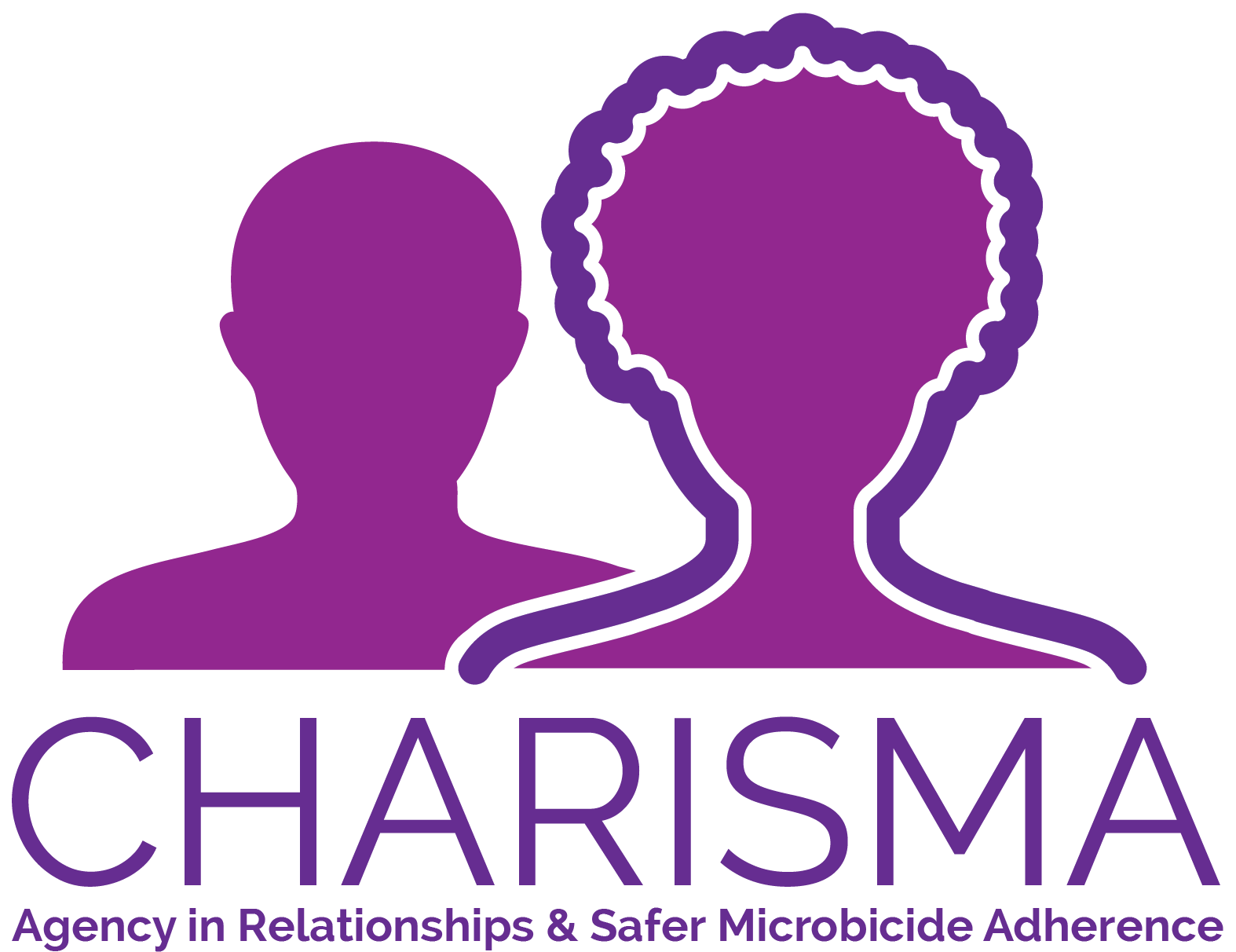CHARISMA supports efforts to: increase women’s agency to safely use ARV-based HIV prevention, to engage male partners in HIV prevention, and to overcome harmful gender norms and reduce intimate partner violence (IPV).
- Landscape and secondary data analysis completed.
- Formative data collection nearly finished.
- Intervention planning underway.
- Scientific Advisory Group meeting convened.
Landscape and secondary data analysis completed. CHARISMA completed its landscape analysis and secondary data analysis, including a review of the context of gender and violence in South Africa and best practices for engaging men in women’s health. It also included data analysis on social harms experienced during microbicide trials and male partner involvement in product use.
Formative data collection nearly finished. The team has almost completed formative data collection at Wits RHI, located in the Hillbrow area of Johannesburg. Data collection included in-depth interviews with former ASPIRE trial participants about social harms and their male partners, focus groups with healthcare providers, as well as cognitive interviews with microbicide trial-experienced and trial-naïve women. A survey that includes potential items for the Social Benefits-Harms Tool (SBHT) is underway and should be concluded by the end of August 2016. The primary data captured through this formative research (i.e., IDIs, FGDs and survey), along with the country-stratified landscape analysis and secondary data analysis, are being analyzed to inform overall CHARISMA intervention design, including the content of the SBHT and counseling modules.
Intervention planning underway. The team is busy planning the CHARISMA intervention, which will include clinic- and community-based components.
The clinic-based component will be integrated into the HOPE (MTN-025) open-label dapivirine ring study around October 1 at the Wits RHI site in Hillbrow. To inform clinic-based intervention development, the team held an intervention planning workshop with the Task 2 data collection team and other key Wits RHI, Sonke Gender Justice, and RTI staff from the CHARISMA project. During the planning workshop, the group discussed CHARISMA counseling module content, procedures, and other intervention components. Site staff will provide counseling and support to HOPE participants to reduce their risk of intimate partner violence and to help them navigate partner dynamics to maximize product adherence.
For the community-based component, Sonke Gender Justice conducted a pilot workshop in Hillbrow aimed at promoting community-based male partner support of microbicide use and providing other gender and HIV-related male partner education. Based on the pilot, Sonke will refine the workshop curricula then implement it near the HOPE study site in Hillbrow.
Scientific Advisory Group meeting convened. The CHARISMA team hosted a Scientific Advisory Group meeting with an international group of IPV and HIV research and intervention experts on August 3, 2016. During the meeting, the CHARISMA team reported on the research findings informing CHARISMA intervention development, presented an overview of the planned intervention components, and received feedback from Scientific Advisory Group members. The SAG commended the team on their progress and offered suggestions on how the findings and data collection tools from CHARISMA could contribute to other work in the field, and vice versa.
No Responses
Leave a Reply

